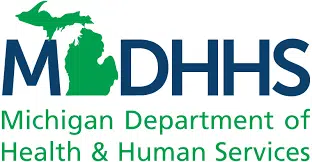LANSING, MI (WKZO AM/FM) — The Michigan Department of Health and Human Services (MDHHS) announced on Monday, September 12, a human case of Influenza A (H1N2)v in the state.
The case was confirmed by the Centers for Disease Control and Prevention (CDC) on Friday, September 9, in a Berrien County fairgoer who had contact with swine at the Berrien County Youth Fair. The fair was held August 15-20. Fair officials are working collaboratively with MDHHS and the Berrien County Health Department.
MDHHS and the Michigan Department of Agriculture and Rural Development (MDARD) are urging fairgoers to take precautions to prevent infection at upcoming fairs where swine may be exhibited.
Fair season in Michigan extends into October. The following are steps Michiganders can take to protect themselves and prevent the spread of any illness:
- Anyone who is at high risk of serious flu complications and is planning to attend a fair should avoid pigs and swine barns.
- Refrain from eating or drinking in livestock barns or show rings.
- Do not take toys, pacifiers, cups, baby bottles, strollers or similar items into pig areas.
- Avoid touching your eyes, nose and mouth. Germs spread this way.
- Avoid contact with pigs if you have flu-like symptoms. This includes being in a swine barn if you are ill as influenza can be spread via respiratory droplets.
- If you are sick, stay home from work or school until your illness is over.
- Avoid close contact with sick people.
- Cover your nose and mouth with a tissue when you cough or sneeze. Throw the tissue in the trash after you use it and wash your hands.
- Wash your hands often with soap and water. If soap and water are not available, use an alcohol-based hand sanitizer.
Swine influenza is a respiratory disease in pigs caused by type A influenza viruses that regularly circulate among swine. Swine influenza viruses do not usually infect humans, but human infections have been reported. People cannot get swine influenza from eating properly prepared pork or handling pork products – only from contact with an ill pig.
Symptoms of swine influenza in people are similar to the seasonal flu and can include fever, cough, runny nose, and sometimes body aches, nausea, vomiting or diarrhea. On rare occasions, swine influenza in humans can lead to severe diseases, such as pneumonia or death. Physicians are reminded to consider swine influenza in persons presenting with these symptoms, even during the warmer months when seasonal influenza cases are low.
Those at higher risk of developing complications if they get swine influenza include children younger than 5 years of age, people 65 years of age and older, pregnant women and people with certain chronic health issues, such as asthma, diabetes, heart disease, weakened immune systems and neurological conditions.
Currently, there is no vaccine for swine influenza, and the seasonal flu vaccine will not protect against it. However, antiviral drugs, such as Tamiflu and Relenza, are effective in treating swine influenza. Early treatment works best and may be especially important for people with a high-risk condition.
For more information on minimizing the transmission of illness at livestock exhibitions, visit the USDA website. For more information on swine influenza, visit the CDC website.




